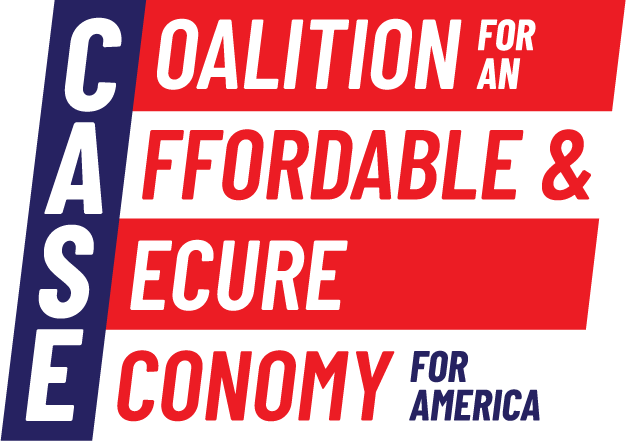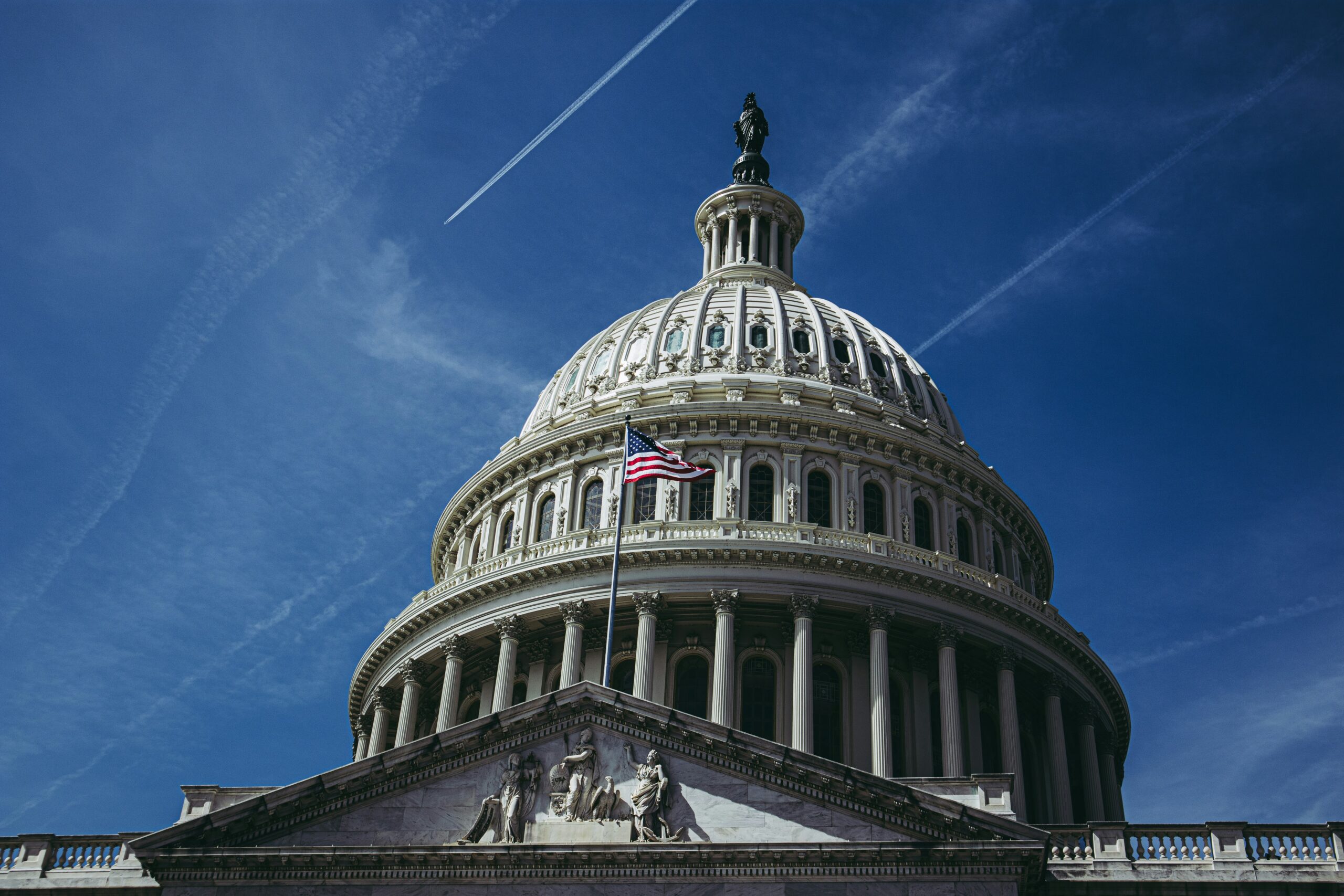Affordability Remains Top Of Mind As President Delivered First Speech To Congress
Lawmakers, business leaders and industry experts are sounding the alarm on President Trump’s newly imposed broad tariffs on Mexico and Canada, and increased tariffs on China. They warn of rising trade tensions, supply chain chaos, higher prices and job losses for the middle class.
While Americans are craving a strong economy and lower prices, confidence is receding, as data from the president’s own pollster has shown. Broad-based tariffs on everyday consumer goods, such as food, clothing and other household items, will raise costs, threaten jobs and slow down growth, which will hit working-class families hardest.
As the debate continues, these voices are asking: What’s the real cost of these policies?
BUSINESS AND ECONOMIC LEADERS:
- Former Economic Adviser To Donald Trump Stephen Moore: “I think these tariffs are not a good thing for the economy right now. I think that there’s a lot of uncertainty among a lot of investors. I think businesses are confused by it, and the markets clearly aren’t very happy about it. What I’d like Trump to do is, don’t talk about tariffs right now, because tariffs are taxes. Talk about getting your tax cut done and getting that victory. I think that would really improve American spirits on the economy.” (FOX News, 3/4/25)
- Former Director of the National Economic Council Larry Kudlow: “I would have preferred a different sequence. I would have said get your tax cuts done first and then go for the tariffs … There will be some belt-tightening on the tariffs … But in the first term, the tax cuts came first, and then the tariffs came. And I wish that had been sequenced the same this time around.” (FOX Business News, 3/4/25)
- EY-Parthenon Chief Economist Gregory Daco: “Businesses today, they don’t care about whether the tariffs are coming tomorrow or in a week – they’re preparing [and] trying to build resilience … but doing that has a cost and is inflationary in and of itself. Uncertainty deters economic activity.” (CNBC, 3/4/25)
- Peterson Institute For International Economics Senior Fellow Chad Bown: “Canada, Mexico and China account for more than 40 percent of U.S. imports. The tariffs that Mr. Trump threatened would dwarf any of the trade measures he has previously taken … Increasing tariffs from zero to 25 percent overnight is likely to be much more disruptive to those now highly integrated North American supply chains than anything President Trump did in his first term.” (The New York Times, 3/3/25)
- Alliance for Automotive Innovation President John Bozzella: “Auto tariffs in North America could end up increasing costs on consumers before jobs come back to the country.” (The Washington Post, 3/4/25)
AGRICULTURAL LEADERS:
- American Soybean Association President Caleb Ragland: “Farmers are frustrated. Tariffs are not something to take lightly and ‘have fun’ with. Not only do they hit our family businesses squarely in the wallet, but they rock a core tenet on which our trading relationships are built, and that is reliability. Being able to reliably supply a quality product to them consistently.” (American Soybean Association, 3/4/25)
- American Farm Bureau Federation President Zippy Duvall: “Farmers support the goals of ensuring security and fair trade with other nations, but additional tariffs, along with expected retaliatory tariffs, will take a toll on rural America … We ask the president to continue working with our international partners to find ways to resolve disagreements quickly, so farmers can focus on feeding families in America and abroad.” (American Farm Bureau, 3/4/25)
- Iowa Farmers Union President Aaron Lehman: “Contrary to what the president thinks, this [tariffs] means nothing but pain … Our domestic markets aren’t prepared to pick up the slack and that means lower prices for what we grow.” (Financial Times, 3/4/25)
- National Corn Growers Association President Kenneth Hartman, Jr.: “Farmers are facing a troubling economic landscape due to rising input costs and declining corn prices. We ask President Trump to quickly negotiate agreements with Mexico, Canada and China that will benefit American farmers while addressing issues important to the United States. We call on our trading partners to work with the president to resolve these issues so that we can restore vital market access.” (National Corn Growers Association, 3/4/25)
- U.S. Meat Export Federation Vice President Joe Schuele: “A lot of times people will associate trade tensions with the various governments, but what we’re really impacting here are business relationships that have taken years, in some cases decades to build … Exports have been a real driver that have kept the US meat and livestock sectors thriving at a time when a lot of agriculture is hurting.” (Financial Times, 3/4/25)
- International Fresh Produce Association Vice President of Government Relations Rebeckah Adcock: “Costs will have to be absorbed, because someone has to pay, and a significant part will be passed along to consumers.” (Financial Times, 3/4/25)
- Illinois Corn Growers Association Director of Exports and Logistics Collin Watters: “The broad farm economy was already in a tough spot with low to negative margins.” (Axios, 3/4/25)
- Indiana Farm Bureau Executive Director of Public Policy Andy Tauer: “Hoosier farmers are concerned about the decision to increase tariffs on imports from Canada, Mexico and China – our top trading partners. Indiana Farm Bureau supports the goals of security and ensuring fair trade, however, we do worry how tariffs will drive up the cost of important supplies like fertilizer.” (Axios, 3/4/25)
- Ohio Farm Bureau Spokesperson Ty Higgins: “We are concerned that tariffs can lead to retaliation against U.S. agricultural exports. This can result in restricted markets and lower prices for farmers.” (Axios, 3/4/25)
MEMBERS OF CONGRESS:
- Senate Majority Leader John Thune (R-SD): “I’m hoping they’re a means to an end and not an end itself. I think they’re hopefully temporary – designed to achieve a specific result.” (POLITICO, 3/4/25)
- Thune: “As you know, I’m coming from an agricultural state, I see the tariff issue through a different lens … Nothing happens in a vacuum.” (POLITICO, 3/4/25)
- Senator Rand Paul (R-KY.): “U.S. tariffs inevitably bring Canadian, Mexican, and Chinese tariffs which means higher prices for lumber, steel, aluminum and more expensive homes and cars.” (X Post, 3/4/25)
- Paul: “Retaliatory tariffs lead to lowered U.S. farm exports, lowered bourbon exports, and less international shipping. Tariffs are taxes and if you tax trade you’ll get less trade and less prosperity.” (X Post, 3/4/25)
- Senator Jerry Moran (R-KS): “Uneasy, I think, is a word.” (POLITICO, 3/4/25)
- Senator Markwayne Mullin (R-OK): “Am I worried that it could impact us? Of course, as American people ready to get the country back on track and do what it needs to do, what it takes to get to – make that happen, absolutely, we’re gonna have to adjust some prices for it.” (CNN, 3/4/25)
- Senator Rick Scott (R-FL): “My goal is that these tariffs don’t end up with higher prices.” (CNN, 3/4/25)
- Senator Ron Johnson (R-WI): “What does the stock market think of them? That tells you something.” (Semafor, 3/4/25)
- Senator Ted Cruz (R-TX): “[A]ired similar hopes that the tariffs are ‘short-lived,’ while underscoring his agreement with the Trump Administration’s border security priorities.” (Semafor, 3/4/25)
- Senator John Curtis (R-UT): “[S]aid every conversation he has with the administration on tariffs is about relief for small businesses.” (Semafor, 3/4/25)
- Representative Dan Newhouse (R-WA): “It wouldn’t be good, you know, I come from an agricultural area. Canada and Mexico are two of our top trading partners, and so it would make our ability to sell our products more difficult.” (CNN, 3/4/25)
- Representative Michael Baumgartner (R-WA): “A tariff is a tax imposed by the U.S. government on imported goods. When American businesses purchase foreign products subject to tariffs, they must pay an additional fee to the U.S. Treasury. While tariffs are often framed as penalties on foreign competitors, the economic reality is that they are taxes paid by American businesses and often passed down to consumers in the form of higher prices.” (The Spokesman Review, 3/5/25)

